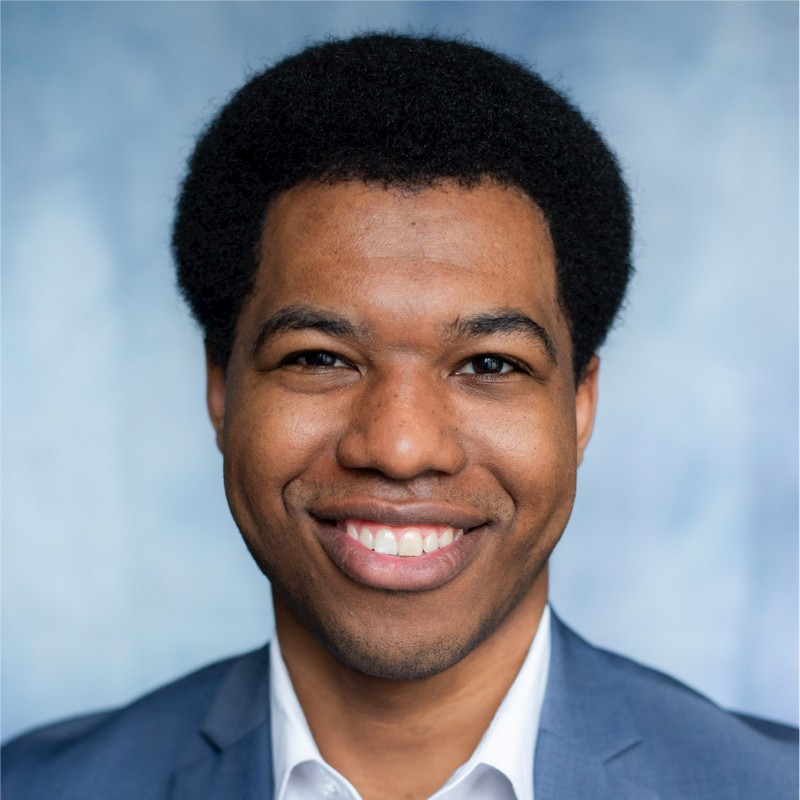Vaccine Reluctance and Medical Mistrust: A New Way Forward
By Hannah Conforti (JD-MBA ‘21) and Christopher Gordon (MD-MBA ‘21)
The COVID-19 pandemic has continued to highlight the complex web of problems that leads to health inequities. Despite there being no biological distinction between racial groups, communities of color have been the hardest hit by the pandemic. In Chicago, as of early February 2021, roughly 1,800 Black people have died due to COVID-19 out of roughly 4,700 total COVID-19 deaths. This is 38% of the city’s deaths despite the city being only 29% Black. Societal factors help explain this discrepancy: Black Americans have a higher propensity to live in densely-packed housing, are less likely to be able to work from home, and have greater rates of medical conditions that increase the likelihood of severe illness.
Through the tireless efforts of scientists and researchers, combined with funding provided by Operation Warp Speed, we have multiple efficacious COVID-19 vaccines, and they have shown very few serious adverse events. Once a significant portion of the population becomes vaccinated, we will achieve herd immunity and we can hopefully return to some semblance of normalcy.
To get to that point, there are obvious challenges: mass vaccine production, distribution to vaccination sites, and coordination to administer the vaccine to the public. The roll-out of the vaccine has begun, and while slower than originally desired, there is promise that operations are improving. However, one continued challenge is people’s refusal to take the vaccine, even among members of the healthcare community.
Based on polling data, a large percentage of Black Americans have shown reluctance to take the vaccine. As compared to 63% of Hispanics and 61% of Whites, only 42% of Blacks say they would get the COVID-19 vaccine once made available to them. A major reason for this disparity is their lack of trust in the healthcare system. Given the history of how the United States has treated the Black community, this should not be surprising. From being subjugated to slavery for centuries, to enduring unethical racial experiments, to receiving differential treatment by medical professionals, Black Americans are more than justified in their reservations.
Until trust is gained, there will continue to be a large segment of the population at risk of poorer health outcomes, both during and post-pandemic. The question remains: How can we build trust given the long history of prejudice and mistreatment? Of course there is no easy solution; however, there are several strategies that should be pursued to both increase vaccine acceptance now and reduce mistrust beyond the pandemic.
Address misinformation.
Clearly, to reduce skepticism surrounding the vaccines, misinformation must be addressed. According to the Kaiser Family Foundation, “about half of Black adults who say they probably or definitely won’t get vaccinated cite as major reasons that they are worried they may get COVID-19 from the vaccine (50%) or that they don’t trust vaccines in general (47%).” Addressing these concerns by explaining the science behind vaccines is pivotal to increase vaccine acceptance. While information on efficacy and side effects has improved people’s willingness to get the vaccine, continued efforts to battle misinformation are needed. Also, increasing the visibility of people getting the vaccine may help reduce safety concerns.
Take care with messaging.
There have been well-meaning examples of leaders trying to advocate for the Black community in relation to the vaccine, but some of these messages have not been well received. One such example is when Melinda Gates spoke at the Forbes 400 Summit on Philanthropy last June saying Black people should be prioritized after healthcare workers to receive the vaccine. While she had sound reasoning in saying this, many Black people felt she was saying they should be used as guinea pigs for the vaccine. Even though she did not intend for that to be the message, leaders must take care to think about how their words might come across. Reaching out to others who do not look like yourself for a different perspective can be helpful when trying to send the right message, no matter the audience. This level of sensitivity shows due care and thereby can build trust.
Increase representation.
Looking long-term, the lack of Black representation in medicine must be addressed. Only 5% of physicians, and 3.6% of full-time medical school faculty are Black. In addition, only 5.8% of current resident physicians are Black, meaning more accurate representation will not be achieved in the near future.
Representation matters. A 2018 study, for example, found Black males were 18% more likely to agree to a health screening when they knew the doctor doing the screening would be Black as opposed to White. This increased screening could lead to a 19% reduction in the mortality gap between Black and White males due to cardiovascular disease and thereby reduce the overall life expectancy gap between these two groups by 8%. Clearly, trust can be gained through adequate representation. This representation must also be achieved at the management level, where only 9% of hospital CEOs and 11% of hospital executives are minorities.
Own the problem.
In any relationship, when one party wrongs the other, healing and restoration cannot occur without acknowledging past wrongdoing and making amends. It is important to understand that centuries of mistreatment have led to present disparities. Furthermore, it is important to know that injustices did not stop with the end of slavery or with the civil rights movement; injustices continue to occur today. Though we may not feel personally responsible, we cannot continue to shift the burden of righting wrongdoings to the next generation.
Admittedly, addressing mistrust in the face of decades upon decades of racial injustice is one of the hardest obstacles to overcome in eliminating health disparities; however, without building trust, gaps in vaccine acceptance and in health outcomes between Black and White Americans will surely persist. Building trust requires great commitment from those inside and outside of the healthcare community, but striving for a more equitable future is well worth the effort.
ABOUT THE AUTHORS
Hannah Conforti is a JD-MBA candidate set to graduate May/June 2021. Before graduate school she worked at a healthcare consulting firm in San Francisco. While in grad school, she has spent time at digital health and biotech firms. She is a member of the Journal of Human Rights at the law school and cares deeply about fighting injustices.
Christopher Gordon is an MD-MBA student graduating May/June 2021. He has shown dedication to addressing health inequities through his research in acute stroke care and as the president of Northwestern’s Student National Medical Association. He spent last summer at Boston Consulting Group in their healthcare practice and will begin his internal medicine residency this July.


